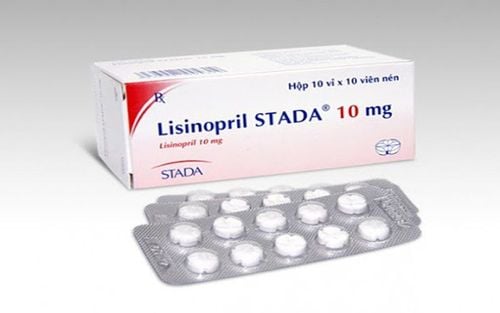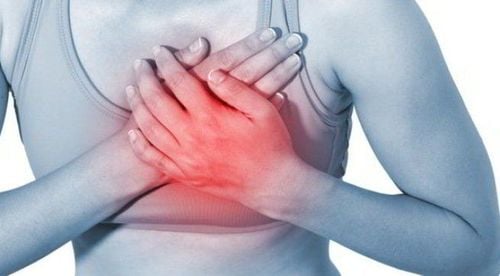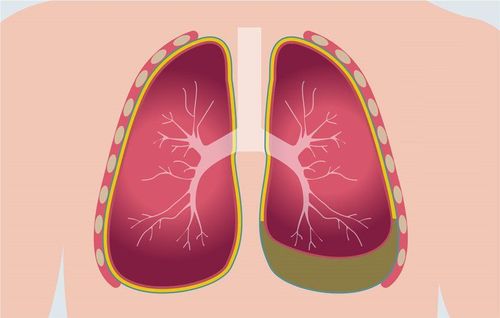This is an automatically translated article.
The article was professionally consulted by Specialist Doctor II Nguyen Quoc Viet - Department of Medical Examination & Internal Medicine - Vinmec Danang International General Hospital. The doctor has more than 20 years of experience in the examination and treatment of cardiovascular diseases and Interventional Cardiology.Rheumatic heart disease is a condition that occurs after infection with group A beta-hemolytic streptococcus, which manifests as damage to the heart, joints and blood vessels. The disease can cause myocarditis, inflammation of the endocardium, leaving many severe sequelae or even death for patients.
1. What is rheumatic heart disease?
Rheumatic fever is an autoimmune inflammatory disease, appearing after an infection of the oropharynx caused by group A beta-hemolytic streptococci. Within 2-3 weeks after strep throat infection oropharyngeal, if not treated adequately and properly, the disease can progress to rheumatic heart disease.Rheumatic heart disease is common in children 5 - 15 years old, the incidence in men and women is equal. The disease can cause serious complications in the heart, joints, brain and skin. In the heart, rheumatic fever can leave long-term consequences such as heart inflammation, thickening of the heart valves, long-term leading to heart valve damage, arrhythmia, heart failure, stroke or even death.
Trắc nghiệm: Huyết áp của bạn có đang thực sự tốt?
Huyết áp cao hay thấp đều ảnh hưởng đến tình trạng sức khỏe con người. Để biết tình trạng huyết áp của bạn có thực sự tốt không, hãy làm bài trắc nghiệm sau đây để đánh giá.2. The mechanism of streptococcal rheumatic disease
The mechanism of rheumatic heart disease is still not clearly defined. There are three theories explaining the pathogenesis of rheumatic heart disease:2.1 Immune Theory In rheumatic heart disease, group A beta-hemolytic streptococcus does not directly damage organs. Most scientists have agreed on the pathogenesis of the disease that there is a risk coincidence between the protein on streptococcus bacteria and the protein of some structures in the human body such as the structure of the heart valve, joints, system, etc. nervous system, ... so when infected with strep, the body reacts with antibodies against this bacteria and causes disease manifestations.
2.2 Intoxication theory Group A beta-hemolytic streptococcus can directly poison organs in the body such as myocardium, heart valve, synovial membrane, brain,... and cause symptoms of the disease. low heart rate.
2.3 Allergic theory Rheumatic heart disease is related to aetiology. Some people are born with a high affinity for streptococci. In some cases, multiple children in the same family have familial rheumatic heart disease.
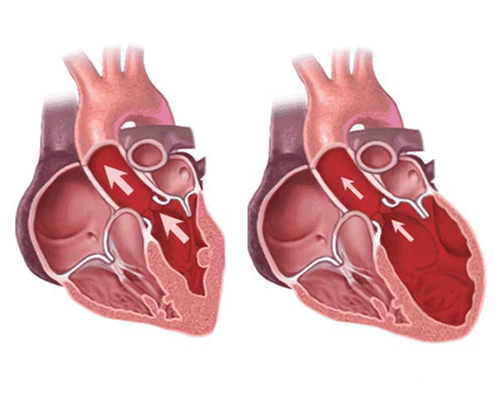
3. Subjects prone to rheumatic heart disease
Not all patients with group A beta-hemolytic streptococci infection in the oropharynx develop rheumatic fever, but only a small proportion lead to rheumatic fever. Predisposing factors for the disease include:Age: 90% of rheumatic fever cases are found in children 7-15 years old, mainly 9-12 years old, rarely in children under 5 years old;

4. Symptoms of rheumatic heart disease
Rheumatic fever usually occurs 2-4 weeks after strep throat with the first symptoms of the whole body being high fever, fatigue, abdominal pain, pale skin, nosebleeds. In addition, the disease also shows symptoms in the following organs:In the joints: Acute polyarthritis and arthralgia, found in 75% of rheumatic fever cases. Painful inflammation is mainly seen in large and small joints such as knees, elbows, wrists, ankles, ... Joints with typical inflammatory manifestations are swelling, heat, redness, pain, joint effusion, Non-purulent, inflammatory joints are often asymmetrical and movable (when one joint heals, the inflammatory symptoms transfer to another). The duration of inflammation in each joint usually ranges from 3 to 5 days, no more than 10 days and usually resolves spontaneously or quickly if using anti-inflammatory drugs and corticosteroids, leaving no sequelae; In the heart (heart inflammation): Is the most severe and dangerous manifestation of rheumatic heart disease, seen in 50% of cases of rheumatic heart disease. Patients can die from acute heart failure due to heart inflammation or irreversible chronic heart failure causing rheumatic heart disease. Rheumatic heart diseases include: simple endocarditis (fatigue, palpitations, palpitations, dyspnoea on exertion), myocarditis - endocarditis (fatigue, dyspnoea, little urination) , sweating, low blood pressure, mild peripheral cyanosis), pericarditis (throbbing pain in the left chest or in front of the heart, pain when taking a deep breath, changing position) and generalized heart inflammation (symptoms associated with all three above); Neurological: Chorea (motor disorders, language disorders and emotional disorders), uncommon manifestations include paralysis, coma, convulsions,...; Skin: erythematous ring (circular, 1–3cm in diameter, bordered, pink or pale yellow, non-pruritic, distributed on trunk and extremities, disappearing after a few days) or subcutaneous (hard) , 0.5 - 2cm in diameter, subcutaneously mobile, adheres to the bone base near the spine, shoulder blades, persists for a few days to a few weeks and then disappears; Other rare manifestations: Pleurisy, interstitial pneumonia, stomachache,...
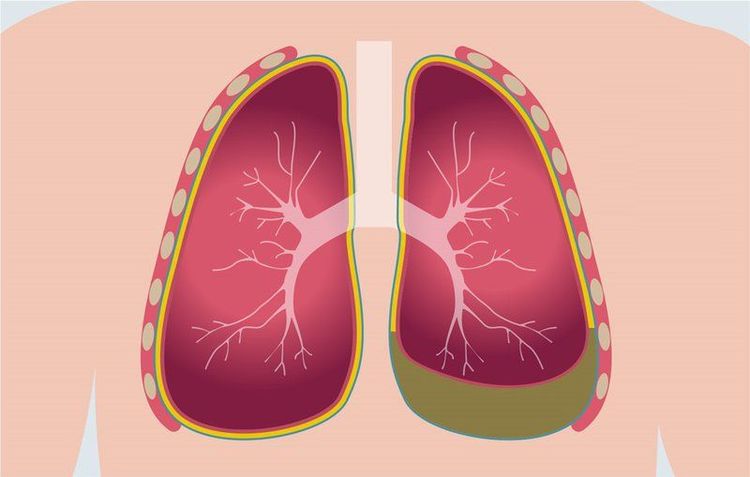
5. How to prevent rheumatic heart disease
If you have a sense of prevention, you can avoid many serious consequences of rheumatic heart disease. Some important notes are:Keep the living environment, body hygiene, especially the nose and throat area regularly and clean; Keep the neck, chest, nose and throat warm in winter and have a scientific diet to improve resistance; Early treatment of sore throat , tonsillitis or sinusitis in children ; If a child 5-15 years old has a sore throat many times, has pain, swelling, heat, pain in the joints, shortness of breath, fatigue, chest tightness, heart pain or other abnormal psychomotor symptoms, children need to go to the doctor immediately to detect and promptly treat rheumatic heart disease; When children are vaccinated, they should be done correctly to avoid recurrence of the disease, leaving dangerous sequelae. When diagnosed with rheumatic heart disease, patients should absolutely follow the doctor's instructions in treating the disease to minimize the risk of dangerous complications.
To protect cardiovascular health in general and detect early signs of cardiovascular disease, customers can sign up for the Cardiovascular Screening Package of Vinmec International General Hospital. The examination package helps to detect cardiovascular problems at the earliest through tests and modern imaging methods. The package is for all ages, genders and is especially essential for people with risk factors for cardiovascular disease.
Why should you choose Cardiovascular Screening Package at Vinmec International General Hospital?
Simple and quick procedure. Enthusiastic advice and support, reasonable and convenient examination process. Comprehensive facilities, including a system of clinics and consultations, blood collection rooms, dining rooms, waiting areas for customers... Professional, caring way of working.
Please dial HOTLINE for more information or register for an appointment HERE. Download MyVinmec app to make appointments faster and to manage your bookings easily.







